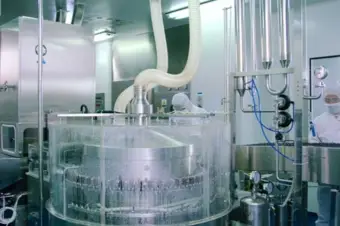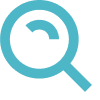Sulodexide API Manufacturers & Suppliers
Find, compare & contact
Filters
Custom request?
Type
Production region
Qualifications
Country of origin
Distributor
Produced in:
Established in: 1987
MOQ: 1 kg
Employees: 50+

ISO 9001:2015 & SGS audited supplier

One-stop CDMO Solutions for APl and Key intermediates

Specialized in APIs & Pharmaceutical Intermediates for 38 years
+ 0
All certificates
Producer
+ 0
All certificates
Producer
+ 0
All certificates
Producer
+ 0
All certificates
How does it work?
You can register for free as long as you are registering on behalf of a legal company related to the pharmaceutical industry
Search in the search bar the product that you’re looking for. We’ll show you an overview of all available suppliers. Use the filters to select the relevant suppliers only
Have you found interesting suppliers? Then it’s time to contact them. Use the send inquiry button and send them a message. You can send for each product, 3 inquiries per week
Suppliers get notified by Pharmaoffer that they’ve received a new inquiry. They will come back to you with their questions, certificates, and offer in the chat on Pharmaoffer. We will send you an email in case of any news
Does the supplier meet your quality and commercial requirements? Then you can place the order. Just follow the steps of our order module
Looking for Sulodexide API 57821-29-1?
- Description:
- Here you will find a list of producers, manufacturers and distributors of Sulodexide. You can filter on certificates such as GMP, FDA, CEP, Written Confirmation and more. Send inquiries for free and get in direct contact with the supplier of your choice.
- API | Excipient name:
- Sulodexide
- Cas Number:
- 57821-29-1
- DrugBank number:
- DB06271
- Unique Ingredient Identifier:
- 75HGV0062C
About Sulodexide
Want to know what Sulodexide is used for? Sulodexide is a mixture of glycosaminoglycans (GAGs) composed of dermatan sulfate (DS) and fast moving heparin (FMH).
Not sure if this is the exact product you're looking for? Contact the supplier by using the send inquiry button.
Sulodexide is a type of Antithrombotics
Antithrombotics, a subcategory of pharmaceutical active pharmaceutical ingredients (APIs), play a crucial role in preventing and treating thrombotic disorders, which are characterized by the formation of blood clots within blood vessels. These medications are essential in reducing the risk of thrombosis, such as deep vein thrombosis (DVT), pulmonary embolism (PE), and stroke, which can lead to severe health complications.
Antithrombotics exert their therapeutic effects through various mechanisms. One commonly used class of antithrombotics is anticoagulants, which inhibit the clotting process by interfering with the formation of blood clots. These drugs include heparin, warfarin, and direct oral anticoagulants (DOACs). They are administered to patients with conditions like atrial fibrillation, venous thromboembolism, or mechanical heart valves to prevent clot formation.
Another class of antithrombotics is antiplatelet agents, which prevent platelet aggregation, an essential step in blood clot formation. Aspirin, clopidogrel, and ticagrelor are well-known antiplatelet drugs used to prevent thrombosis in patients with coronary artery disease, ischemic stroke, or peripheral artery disease.
Antithrombotics are typically prescribed based on the individual patient's risk factors, medical history, and the specific thrombotic condition being treated. Dosage and administration instructions may vary depending on the drug's pharmacokinetic profile and desired therapeutic outcomes.
As with any medication, antithrombotics may have potential side effects, such as increased bleeding risk. Therefore, healthcare professionals carefully assess the patient's overall health status, including any underlying conditions, before prescribing these medications.
In conclusion, antithrombotics are a crucial subcategory of pharmaceutical APIs that play a vital role in preventing and treating thrombotic disorders. By inhibiting clot formation through various mechanisms, these medications significantly contribute to reducing the risk of serious complications associated with blood clots.
Sulodexide (Antithrombotics), classified under Anticoagulants
Anticoagulants are a vital category of pharmaceutical active pharmaceutical ingredients (APIs) used to prevent and treat blood clotting disorders. These medications play a crucial role in various medical conditions, including deep vein thrombosis (DVT), pulmonary embolism (PE), and atrial fibrillation (AF). Anticoagulants work by inhibiting the formation of blood clots or by preventing existing clots from getting larger.
There are different types of anticoagulants available, including direct thrombin inhibitors, vitamin K antagonists, and factor Xa inhibitors. Direct thrombin inhibitors, such as dabigatran, directly target the enzyme thrombin to hinder clot formation. Vitamin K antagonists, like warfarin, interfere with the production of clotting factors that rely on vitamin K. Factor Xa inhibitors, such as rivaroxaban and apixaban, inhibit the activity of factor Xa, a crucial component in the clotting cascade.
Anticoagulants are commonly prescribed to patients at risk of developing blood clots or those with existing clotting disorders. They are often used during surgeries, such as hip or knee replacements, to minimize the risk of post-operative clot formation. Patients with AF, a condition characterized by irregular heart rhythm, may also be prescribed anticoagulants to prevent stroke caused by blood clots.
While anticoagulants offer significant benefits in preventing and treating clot-related conditions, they also carry potential risks, including bleeding complications. Patients taking anticoagulants require careful monitoring to ensure the right dosage is administered, as excessive anticoagulation can lead to hemorrhage. Regular blood tests and close medical supervision are essential to manage the delicate balance between preventing clots and avoiding excessive bleeding.
In conclusion, anticoagulants are a crucial category of pharmaceutical APIs used to prevent and treat blood clotting disorders. They function by inhibiting clot formation or preventing existing clots from enlarging. While highly beneficial, their use requires careful monitoring to minimize the risk of bleeding complications.
Sulodexide manufacturers | traders | suppliers
We have 4 companies offering Sulodexide produced in 0 different countries.
Get in contact with the supplier of your choice:
- Sinoway industrial Co.,Ltd from China, product country of origin China
- Lab. Derivati Organici from Italy, product country of origin Italy
- Opocrin S-C Plant from Italy, product country of origin Italy
- Biofer from Italy, product country of origin Italy
Let the supplier know whether you are looking for a product with a specific monograph such as EP (Ph. Eur.), USP, JP, BP or another quality. Or, whether you are looking for hydrochloride (HCl), anhydricum, base, micronisatum or a specific purity.
You can use the filters to find high-quality suppliers. For example, you can select GMP, FDA or ISO certified suppliers. Visit our FAQ page or use the chat box in the corner to get more information about Pharmaoffer.










